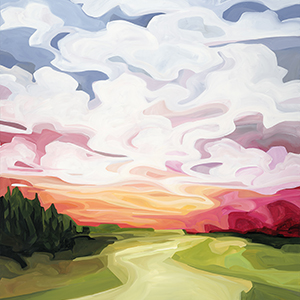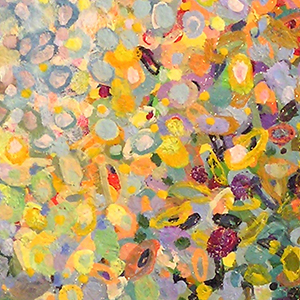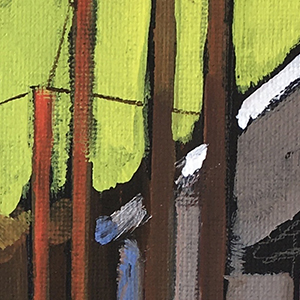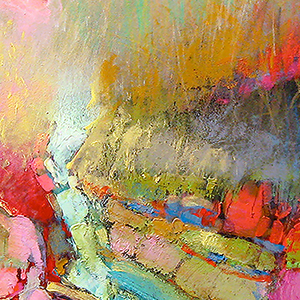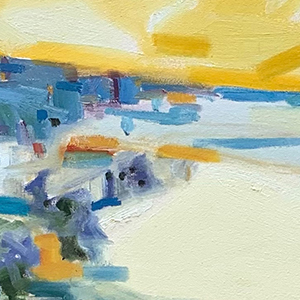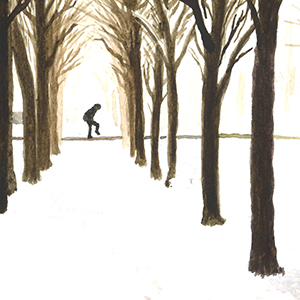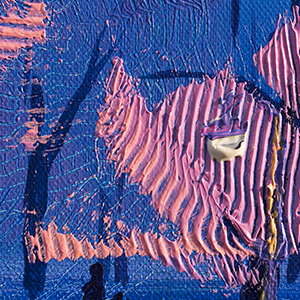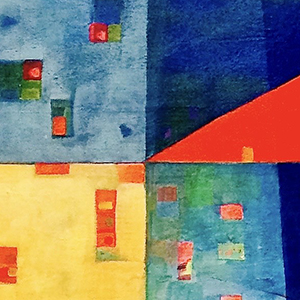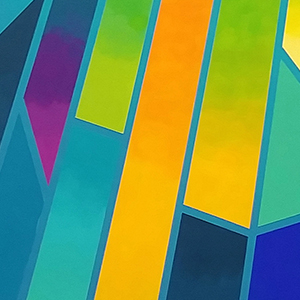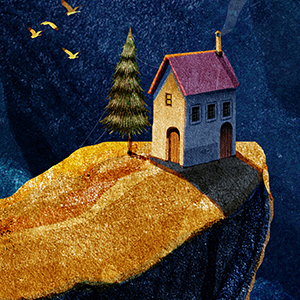The early days of the pandemic were filled with fear and uncertainty, but we also witnessed levels of compassion, solidarity, and sacrifice that were previously unimaginable. In the midst of suffering, a seed of hope grew as we heard stories of medical personnel mobilizing, people sewing masks in their homes, and others singing from balconies to remain connected. The potential of the human spirit flourished, and many hoped that this spirit would remain after the pandemic ended, moving us toward a more compassionate and connected world.
As the pandemic wore on, divisions and selfishness reappeared, and our early hope seemed naïve. Now, many are glad that things have mostly returned to normal. Schools are open, lockdowns have ceased, and (while they are still present) masks are optional. But even as many are relieved by a recovery of the status quo, we are also left to wonder whether this is really the most we should hope for. The pandemic revealed broken systems and relationships with new clarity, and those issues still remain. Is the status quo really all that is possible? Or does that seed of hope and compassion we witnessed in the early crisis still exist? If it does, how can we nurture it and help it grow?
“Catastrophe Compassion”
An Opportunity for Growth
The hope of a transformed post-pandemic world is supported by contemporary trauma research, which demonstrates that trauma does not inevitably result in ongoing stress, but can engender positive growth. Consonant with these research findings, in The War for Kindness: Building Empathy in a Fractured World, Jamil Zaki coined the phrase “catastrophe compassion.”1 Disasters such as earthquakes, tsunamis, war, and terror attacks are places where compassion and care emerge, according to research by Zaki and others. “During and in the immediate aftermath of disasters, people realize how much they need each other and they band together, finding ways to help and comfort strangers. Suffering together, they develop a sense of shared identity, purpose and solidarity.” This, Zaki contends, is catastrophe compassion.
Building on this concept, Zaki’s critical question for today is: “Instead of emerging from the Coronavirus pandemic resilient to crisis and catastrophe, what if we grew stronger because of it?” In response to this question, Zaki argues that the spontaneous outpouring of compassion and charity that is oftentimes witnessed during times of trauma can present people with a view of themselves that surprises them. Driven by what he calls “otherishness” rather than selfishness, it can awaken in individuals, and society as a whole, compassion for the other that was lying dormant.
According to Zaki, if this “catastrophe compassion” can be harnessed during the post-trauma period, it can lead to significant growth both at the personal level for individuals as well as at the societal level. The challenge, however, is to “institute personal and social norms that are more balanced, just and equitable.” Zaki cogently reminds us that a better normal also means creating more compassionate social structures.2
As I reflect on the trauma we have all experienced and continue to experience from the pandemic at the global, local, and personal levels, I would like to suggest modest ways in which we have witnessed “catastrophe compassion” during the Covid-19 pandemic, and how we can turn our “catastrophe compassion” into opportunities for personal growth and the transformation of a post Covid-19 world into a more compassionate, caring, and just one.
Global Trauma
Seeing Inequality, Pursuing Solidarity
First, we can hope that seeing suffering more clearly might lead to a new commitment to compassion and justice. The Covid-19 pandemic as a global health emergency has laid bare the huge inequalities in wealth distribution, and especially health disparities, within and across nation states. While almost everyone was adversely impacted by the pandemic, it was palpable that the marginalized and poorer members of our societies were bearing the brunt of the anguish and distress that resulted from prolonged lockdowns, lack of access to health care, job losses, lack of access to water, and the impossibility of maintaining social distances in overcrowded urban sprawls. In a briefing to the White House, the chief medical expert of the United States Coronavirus scientific team, Dr. Anthony Fauci said:
“Health disparities have always existed for the African American community . . . [coronavirus is] shining a bright light on how unacceptable that is because, yet again, when you have a situation like the coronavirus, they are suffering disproportionately. We will get over coronavirus, but there will still be health disparities which we really do need to address in the African American community.”3
The structural conditions that inform pre-existing conditions and health disparities and its negative manifestation during the Covid-19 pandemic are not unique to the USA. This is a global phenomenon which was most visible in the new and fast spreading coronavirus variants that ravaged parts of India and Brazil. It led the well-known Indian writer and social justice activist, Arundhati Roy, to describe the current death and devastation wrought by the second wave of the Covid-19 pandemic in India as a “crime against humanity.”
Chief among the reasons Roy provides to justify her judgment is the weak public health system. She contends that India spends about 1.25% of its gross domestic product on health, far lower than most countries in the world, even the poorest ones. She cites a 2016 Lancet study that shows that 78% of India’s healthcare located in urban areas and 71% in rural areas are now handled by the private sector. She furthermore argues that “the private sector will not cater to starving, sick, dying people who don’t have money.” This massive privatization of India’s healthcare, she contends, is a crime against the vast majority of India’s citizens.4
In light of the horrifying manner in which the Covid-19 pandemic has made manifest for the world to see and fully appreciate the callous injustices of healthcare systems across the globe, it should be clear that justice and compassion demand a commitment to Universal Health Care.
With respect to the broader injustice of the huge disparities in wealth and income levels that the pandemic made visible, I commend the intuitive manner in which most governments across the world responded compassionately to the plight of the most vulnerable members of our society during the enforced lockdown periods. Ironically, social welfare measures were approved by many of the same politicians who, in so-called normal times, were vocal in their condemnations of government fulfilling such a role. Now that it has been proven that governments are able to do more in caring for the most vulnerable of their citizens, we should actively campaign for such social welfare measures to became a more permanent feature of good governance.
Notwithstanding the many negativities that were made manifest during the Covid-19 pandemic, there were also many examples of “catastrophe compassion,” such as the relatively better cooperation we witnessed between nation-states. While there are still horrifying levels of competition and self-interest between countries, during the pandemic the global community has been compelled to accept that none of us live on an island and that our destinies are intricately connected. During this pandemic, we have witnessed previously unimaginable acts of compassion and solidarity between countries. For example, in response to the devastating second wave of Coronavirus infections that was crushing parts of India, a Pakistani NGO responded compassionately to the plight of its neighbors by offering to send 50 ambulances with support staff across the border to assist with transporting patients to hospitals. This compassionate gesture, together with messages of solidarity from the Pakistani government, led to a Twitter campaign #PakistanStandsWithIndia, which went viral.5 There are numerous similar examples. If we are able to sustain just a small amount of this kind of cooperation and solidarity, we will be able to fashion a more compassionate post Covid-19 world.
Local Trauma
Physically Distant but Socially Connected
The second place of trauma from which catastrophe compassion arose was at the local level, where the rupture of our relationships with our loved ones, friends, neighbors, and colleagues was felt most acutely. Unlike other disasters, such as an earthquake or a shooting or bomb attack, during the pandemic we feared the possibility that each person we interacted with, even if they were our own spouses, children, and parents, held the possibility of infecting us with the dreaded coronavirus, or of us infecting them. This was devastating, since during a time of disaster our anxiety and stress levels are at their peak, and it is at this time that we are most in need of each other for comfort and solace. The pandemic, however, ripped us apart from each other. For most, if not all of us, this was a harrowing and novel experience. We were compelled by the sheer human instinct to cope with our isolation to find creative ways of continuing to interact with each other at a distance.
There were countless examples of ordinary people at community levels reaching out to each other. What was most heartening and inspiring was the incredibly creative ways in which communities spontaneously emerged to take care of the food, health, and other basic needs of the elderly and the vulnerable within their midst. Local community soup kitchens and food gardens began mushrooming all over, and some people could literally get fresh vegetables and food from their streets.
Moreover, we became aware and conscious of the critical role of our essential workers in keeping us alive, healthy, and functioning. Healthcare workers risked their lives to save the lives of others. There were many community general practitioners (GPs), hospital staff, doctors, and nurses who succumbed to the virus as a result of caring for others. We also became much more appreciative of the important service that teachers were performing in educating our children, channeling our children’s energies into productive activities, and in many cases, providing childcare. But most of all, we were made aware of our utter dependence on supermarket workers who had to come to work in order to keep our grocery stores open for us to buy our food. While we were sheltering in place, trash collectors were on the streets, keeping our neighborhoods clean and hygienic. Unlike many of us, these essential workers were not allowed to stay at home, but had to risk their lives to keep the basic necessities of life functioning.
We need to acknowledge the vital roles that all essential workers play in our lives and to pledge and promise to never again take them for granted. In this regard, we need to demand more compassionate employment conditions, especially for our so-called blue-collar workers. In a post Covid world, we cannot afford to retreat back into our selfish laagers. Instead, we need to embrace the lessons learnt during this time of tribulations and distress. We must become more “otherish.” We need to continue to build on the community networks we have established and take these and the many wonderful and creative ways in which we created community under the restrictive Covid-19 protocols forward into the future.
Personal Trauma
Overcoming Loss and Grief
The third and final level of trauma arising from the pandemic that I would like to acknowledge is located at the personal level—and is difficult to express in words. All of us have experienced the personal loss of a loved one, friend, or colleague. Under pandemic conditions, our burial and grieving rituals have had to be curtailed, adding to the trauma of the loss. As we enter a post-Covid world with cautious optimism, let us celebrate the triumph of the human spirit against all odds. In finding the strength and courage to carry on after the loss of a loved one, in appreciating the simplicity and beauty of having one another, and in valuing our precious time, we nurture hope for a more compassionate world.
Hope for Greater Flourishing
From the deeply personal to the global, we have witnessed inspiring examples of “catastrophe compassion” during the coronavirus pandemic. The critical question now is how we can sustain this impetus towards compassion in the future. This, indeed, is the challenge of our times. I am confident that we will be able to turn some of these incredible outpourings of compassion and solidarity into opportunities for growth and transformation, and that, God-willing, we will be able to fashion a more compassionate, caring, and just post Covid-19 world.
Notes
- Zakie, Jamil. The War for Kindness: Building Empathy in a Fractured World. New York: Crown, 2019.
- De Witte, Melissa. “Hitting the Reset Button: Stanford Psychologist Says We can Build a Better Normal after the Pandemic,” in Stanford News, March 22, 2021, news.stanford.edu/2021/03/22/hitting-reset-button-building-better-normal-pandemic (accessed on March 28, 2023).
- Fauci, Anthony. “Dr. Anthony Fauci on Health Disparities among People of Color,” The American Journal of Managed Care. August 26, 2020, ajmc.com/view/dr-anthony-fauci-on-health-disparities-affecting-people-of-color (accessed on March 28, 2023).
- Roy, Arundhati. “‘We are witnessing a crime against humanity’: Arundhati Roy on India’s Covid Catastrophe,” The Guardian. 28 April, 2021.
- Hashim Asad. “Pakistani Charity Offers Medical Aid to India Amid Covid Crisis,” in Al-Jazeera, 23 April 2021, aljazeera.com/news/2021/4/23/pakistani-charity-offers-medical-aid-to-india-amid-covid-crisis (accessed on March 30, 2023).








